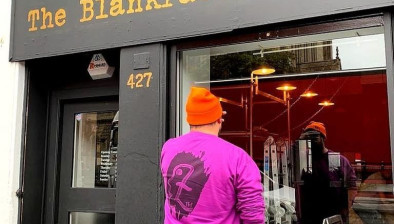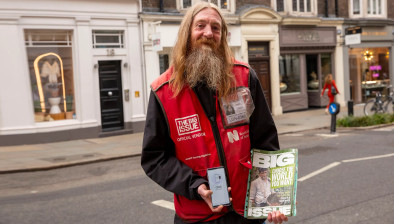Over a quarter of social housing tenants ‘miss out on savings’
 Over a quarter (28 per cent) of social housing tenants are missing out on huge savings by using cash to pay for bills, goods and services, rather than direct debit, according to new research.
Over a quarter (28 per cent) of social housing tenants are missing out on huge savings by using cash to pay for bills, goods and services, rather than direct debit, according to new research.
For many low income families paying in cash, this ‘poverty premium’ has been calculated to amount to more than £1,280 a year – an amount that could be saved if they were paying bills by direct debit.
Experian’s research found that out of the 4.8 million in the UK people living in social housing 1.3 million of them are paying the majority of their bills in cash. Those aged 35-54 years are most likely to pay in this way, with almost a third (31 per cent) choosing cash as their preferred method. A quarter of those aged 55 or over, and those aged 18-34 years pay bills in cash (26 and 24 per cent respectively).
The study also found that a high proportion of social housing tenants have never applied for monthly mobile phone contracts, using instead the ‘pay-as-you-go’ option which is often more expensive. Nearly half (45 per cent) have not applied for a gas or electricity contract. In addition, three-quarters (77 per cent) have never applied for white goods through interest free credit, and 76 per cent of this demographic haven’t previously applied for online products such as insurance.
To help address these digital and social exclusion challenges faced by many social housing tenants in the UK, Experian and Big Issue Invest (The Big Issue’s social investment arm) have partnered together to create The Rental Exchange which aims to open up financial opportunities, previously enjoyed only by those with a healthy credit rating.
Jonathan Westley, managing director of Experian’s Consumer Information Services, said: “It’s a vicious circle for many social housing tenants. They are paying more on bills because without a credit history they cannot be accepted onto a direct debit programme and must pay in cash. Yet at the same time they cannot build a credit history because they are not paying via direct debit. The Rental Exchange can help change this situation by including rental payment data on credit reports, meaning that more people can be considered for basic bank accounts thereby opening up access to direct debit payments.
“The Rental Exchange will feed into the work we already do to help millions of people to get fair and affordable access to the essential, everyday services that so many of us take for granted, by helping them to make the most of their data.”
Through the Rental Exchange, both social and private landlords will be able to submit information about their tenants’ rent payment history, which will help strengthen their credit history. This will ultimately open up access to more services and affordable credit for social housing tenants by enabling them to more easily demonstrate their creditworthiness.
Jim Mullan, group chief executive at the Big Issue, added: “Through this initiative, we want to offer more social housing tenants the opportunity to pay their bills by direct debit, giving them access to better rates than they would typically be offered if they were to pay by cash. Paying by direct debit also improves payment reliability, which ultimately contributes to an improvement in an individual’s credit score. For the majority this could make a significant difference to their outgoings, but we acknowledge that direct debit payments aren’t an option for some people due to certain financial constraints.
“The Rental Exchange aims to help address the problem of financial inclusion amongst social housing tenants and significantly improve the household economics of families and individuals across the country.”
The Social Housing Tenants Study was conducted among more than 1,000 social housing tenants in the UK by Experian.







